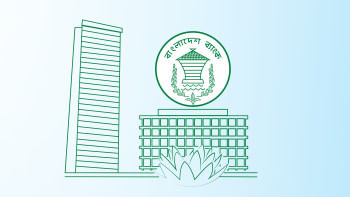Should Civil Service training be misled?
Part of the print media has waxed eloquent on a recent administrative decision of the government in restoring the Rector of Bangladesh Public Administration Training Centre (BPATC) to his former position, from which he resigned out of anger and desperation for being transferred to a position not to his liking.
The news covered by two popular dailies Prothom Alo (January 18) and Amader Shomoy (January 19) contains enough cues that the government attaches less priority to civil service HRD centres, and that it could not but revoke its decision to transfer an officer and not to accept the tendered resignation despite the extant rule that once an officer resigns voluntarily in writing, the resignation cannot but be accepted. However, the indispensability of the incumbent to the apex civil service training centre has now become questionable.
The most important implication is that the government-led HRD centres are confronted with serious leadership crisis of varying degrees. The status of BPATC has reached a point that matches that of the recreational resort where the trainees spend a few days relieved of the hazards of interferences or of gratifying tadbirs or illegal favour-seekers.
Some trainees prefer to respond spontaneously to the invitation for attending a specific training course for professional enrichment, some move heaven and earth to get the deputation order cancelled and to avoid being exposed in the classroom before their colleagues, while others love to spend a slice of their occupational time at training centres "far from the madding crowd" to concentrate on studies.
The government has to appreciate that because of the misguidance and flawed decisions of a few officers the whole government is put on the dock. When veteran civil servants like Dr. Mashiur Rahman, Dr. Tawfique-i-Elahi Chowdhury, Dr. Muhiuddin Khan Alamgir, and A.M.A. Muhit bejewel the government, the prime minister should not have allowed herself to be misguided by a handful of officers short of intellectual acumen and personal ethos.
Heads anywhere, whether in private or public offices, are expected to be role models to juniors and to trainees. The post of the rector is literally and figuratively significant. The significance of the position cannot be allowed to be marred by capricious persons. Again, andragogy suggests that trainees at the educated adult level learn more by observation or imitation than by boring traditional classroom instruction.
Policy makers need to be rational in identifying the right person for the right job. That is the natural demand of a meritocratic government. When meritocracy is supplanted by a capricious decision-making authority, the quality of service delivery system and the fate of the service-seekers become uncertain.
HRD centres happen to be the dumping ground for officers to be marginalised. This seems to be only policy commonly pursued by almost all the regimes. On this issue, exception seems a rarity. In other words, the legacy of marginalising the "unwanted" in HRD centres is not new. Almost all the regimes pursued the policy of marginalising the relatively misfit officers (with few exceptions) as heads of the HRD centres.
The Public Administration Training Policy, May 6, 2003, in its provision no 14.2 stipulates: "As training institutions are the engine of human resource development, adequately qualified, experienced and motivated officers should be appointed heads of training institutions." A popularly elected government like the present one should not compromise with this principle.
I (who put in fifteen years at BPATC) can recall ex-cabinet-secretary Dr. Sadat Husain (now Chairman, PSC) saying at a forum that an officer who has never conducted at least 50 training sessions should not be appointed to head HRD centres. BPATC was once led by civil service veterans like Shaikh Maqsood Ali, A.K.M. Hedaytul Haque, A.Z.M. Shamsul Alam, A.M. Anisuzzaman, Quazi Md. Munzur-i-Mowla, Dr. Ekram Hossain, and Dr. Kamal Siddique. No news item like this was ever published in the press during their tenures.
When a head of HRD centre stays busy playing a flute like Orpheus and compelling trainees to be captive audiences, building musical band to tour with, crossing out the competent guest speakers on the plea that they were invited during the earlier regime to prove affiliation to the existing party-in-power, retaining personal loyalists or sycophants to collaborate with him, punishing the non-conformists by random transfers, and producing no printed messages by himself to guide the young entrants of the Civil Service, the impact of the training delivery can be easily predicted.
When the head behaves abnormally, the "tail" is able to seize chances to multiply abnormality in thought and action. No research or systematic training evaluation is necessary to delve into the outcome of the huge public money sanctioned by the government.
What is urgent for the government now is to see that the public money allocated to HRD activities is used prudently for career-counseling, and for producing professionalised public servants to carry forward its programmes and for aiding to set up a credible democratic government the people look forward to.
DR. SYED NAQUIB MUSLIM IS A FORMER SECRETARY.

 For all latest news, follow The Daily Star's Google News channel.
For all latest news, follow The Daily Star's Google News channel. 



Comments